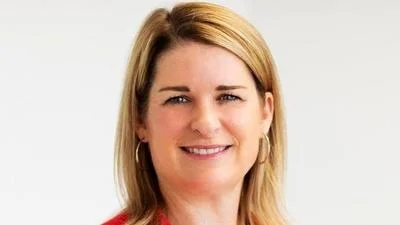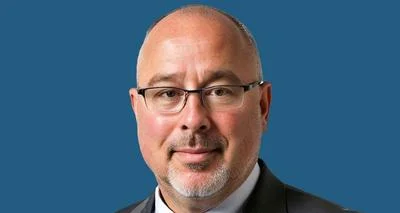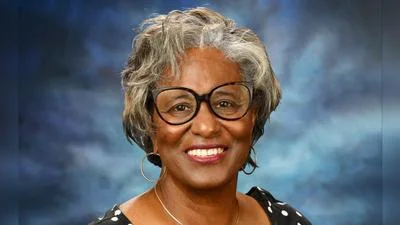State Rep. Dan Caulkins (R-Decatur) | Facebook / Dan Caulkins Illinois State Representative
State Rep. Dan Caulkins (R-Decatur) | Facebook / Dan Caulkins Illinois State Representative
On Jan. 8 the Illinois General Assembly will be absent one of its most prominent contrarian voices when State Rep. Dan Caulkins (R-Decatur) is no longer in the legislative body.
Caulkins chose not to run for re-election in the 88th House District, instead throwing his support behind Regan Deering–the granddaughter of Dwayne Andreas who built the multinational food company Archer Daniels Midland (ADM)–who ran unopposed and will take his spot.
Caulkins, a retired U.S. Army Major with over 20 years of military service and a former ADM employee and entrepreneur, has had a diverse career in both business and public service. A Decatur native and graduate of Eastern Illinois University, he previously served on the Eastern Illinois University Board of Trustees and as a member of the Decatur City Council from 2005 to 2009.

State Rep. Dan Caulkins (R-Decatur) and Jo, his wife of 49 years.
| Facebook / Dan Caulkins Illinois State Representative
During his time in the General Assembly, Caulkins made waves for his constant criticism of Democrat machine politics controlling the state legislature over his three terms in the General Assembly from 2018 to 2024.
As he looks forward to retirement Caulkins said his legacy can be wrapped up in one sentence.
“I told you so,” Caulkins told the Macon Reporter.
“I spent six years telling the voters of this state, particularly in my district–but anyone that would listen and we've traveled all over Illinois– what's coming, what's happening to them. And hopefully waking people up to what's wrong in this state. And it starts with a billionaire multi-billionaire progressive governor who failed.”
Caulkins said Gov. J.B. Pritzker and the state’s taxpayers are going to have a rude awakening to the reality of the state’s fiscal situation in coming years and it will not be easy for anyone to overcome.
“He wants to be president,” Caulkins said of Pritzker.
But before any possibility of a presidential run Caulkins said Pritzker will have to navigate the state’s taxpayers through a treacherous process in which he’ll likely have to raise taxes on everyone.
“I'm just a guy who's sat there and watched this,” he said. “They have shaken every bit of money loose that they could find. They've turned the pockets inside out. They've gone through the cushions and the couch, and they've done as much as they dare do. And you see the effects of it.”
He said the problems in Springfield have far reaching consequences for the entire state.
“Folks are leaving,” Caulkins said. “Businesses are leaving. People are leaving because the jobs are leaving, which then creates another problem. Because when the people aren't here, then there's no one to work. Our retail outlets are losing because of the disposable income that's fled this state in the last 10 years.”
Illinois families already face the highest state and local taxes in the U.S., with the average household paying 15% of its income, or $10,463 annually.
This marks a 22% increase since 2017, reflecting rising tax burdens on residents, who also bear the second-highest gas taxes and significant property tax hikes, particularly renters.
According to Illinois Policy, while Illinois carries 15.5% of the nation's pension debt, pension obligations have drained resources, diverting funds from essential services like education and public safety.
“They're going to have to go after each and every one of us and they have to go after us equally because we have a flat tax,” he said. “I don't know if we'll see it in a veto session. I don't know if we'll see it in the lame duck. I don't know if we'll see it next year during the next General Assembly session. But they are going to have to come up with $3 billion or make drastic cuts in their pet projects. And I don't know how they're going to do that. It's going to be ugly.”
Despite the high tax rate and declining quality of life in the state, Caulkins said he intends on staying in Illinois.
“I’ve got two brothers in Florida,” he said. “They think I'm nuts, but I have no plans to leave. No. We're going to stay and stay involved in the fight. We'll work to help get good people elected. We are going to continue to press the issues that I think are important.”
Caulkins said he’ll get involved in politics again if the right issue comes along.
“I'd love to get involved in a fair maps deal,” he said. “If I could wave a magic wand and say look, this is the right cause and it's not partisan. Democrats may think it's partisan, but it's not. The vast majority of people of this state oppose this gerrymandering. Maybe we'll have some leverage in the next year or two.”
Notably, a Fair Maps referendum was set for the state to vote on in 2016 which would have done away with gerrymandering.
However, that referendum was stricken from the ballot after Supreme Court justices linked to former House Speaker Michael Madigan, who is currently enmeshed in a lengthy public corruption trial, ruled against the amendment.
“I think fair maps would be a start,” Caulkins said. “And the Democrats aren't going to lose power with a fair map system in the state. But if they had 66-67 members instead of 78, it would open up communications. I think they'd be more willing and probably need some bipartisanship in this legislative process.”
However, Caulkins stressed that media bias towards leftists is currently an overwhelming concern which limits meaningful reform in the state.
He warned that if the press continues to be politically aligned, it could undermine the nation’s democratic values.
Caulkins recalled how, in the early 2010s, he maintained positive relationships with the editorial staff at the Decatur Herald & Review.
“Back in 2010, 2012, I had a good relationship with the local Decatur Herald & Review editorial staff," Caulkins said. "The editor and manager, and, you know, we’d go to lunch every three or four weeks, five weeks, whatever, when things were going on. I told those guys consistently that when the press decides to take sides politically, take sides in this country, we will die. We will fail. We will have lost the watchdogs. We will now have our democracy – small 'd' – will be at stake."
However, he believes the media landscape has shifted significantly since then, with mainstream media outlets increasingly and openly supporting leftist politicians and causes.
Caulkins underscored the stakes of a free press, warning that a biased media threatens the very foundation of democracy.
"The future of this country will be at stake,” he said. “The First Amendment, freedom of the press guarantees freedom of the press for a reason. If it is abused, it will eventually lead to the downfall of this country.”
He pointed to examples of what he sees as a lack of balance in mainstream news programs, particularly CBS News' 60 Minutes.
60 Minutes infamously altered an interview with Vice President Kamala Harris during her doomed 2024 presidential bid in an effort her opponents noted aimed at making her answer appear more coherent.
Following backlash, 60 Minutes admitted to editing the interview but refused to release a tape of the interview in its entirety.
Caulkins himself took issue with a recent 60 Minutes segment on election integrity in which a prominent figure associated with the Electronic Registration Information Center (ERIC) was interviewed, claiming that the individual is a “far-left partisan” and that the organization is “corrupt.”
According to Caulkins, ERIC has been accused of mishandling voter data and promoting partisan leftist political agendas, but he contends that the story and other stories on 60 Minutes presented a one-sided narrative without offering an opposing viewpoint.
“You know how infuriating it is to watch CBS Sunday Morning or Face the Nation or 60 Minutes and they run these stories, but there's no other side?” he said. “And you know there's another side.”
Caulkins' remarks come at a time when media distrust is at an all time high, with many Americans questioning the objectivity of news coverage and the influence of corporate and political interests on the press.
According to a recent Gallup poll, Americans' trust in the media remains at a historic low, with just 31% expressing confidence in its ability to report news "fully, accurately, and fairly," consistent with previous years.
The media is now one of the least trusted institutions in the U.S., alongside Congress.
Caulkins notes that the decline in trust toward the media has far-reaching consequences.
"When the press has become so biased that people don't trust it and what comes out of their coverage is in fact biased, it endangers our free society. It endangers our government, our way of government," Caulkins said.
Caulkins suggested that the underlying causes of this bias may be tied to the financial interests of media outlets.
"I think the economy is part of it. When you have advertisers that you don’t want to piss off because that's how it pays the bills. I think that's an influence," he said. "I don’t have an answer of how do you fix it, but it's like any business, I guess."
Caulkins’ criticism extended beyond traditional media to newer technologies such as social media platforms and artificial intelligence. He noted how platforms like Twitter, Facebook and Google search results have become increasingly biased, which he sees as a dangerous trend for public discourse.
“It already has happened,” Caulkins said. “I mean we've seen it on Twitter and Facebook and Google searches and now AI. It seems you ask the question and you get a biased response."
Caulkins expressed concern over algorithms potentially reinforcing political agendas and shaping public opinion in a skewed manner.
"What happens when AI is biased?" he said.
Leftist bias in AI was notably exposed in Google’s Gemini, which was widely panned as a debacle after the AI tool produced ideologically charged results.
Writing for the Free Press, several former Google employees claim that Gemini’s bias reflected deeper issues within the company’s corporate culture.
The former employees argue Google's prioritization of diversity, equity and inclusion (DEI) over excellence led to flawed products, as hiring and decision-making processes became increasingly influenced by identity politics.
Critics note Google's focus on ideological conformity has damaged its reputation and innovation, with one ex-staffer noting that the AI model reflects the biases of the people who trained it.
Caulkins added that the media landscape in Europe should be a warning to Americans.
"Look what's going on in England," he said. "You can be thrown in jail for having an opinion. They're putting people in jail in England because they have an opinion about something – slander or whatever. If you don't toe the company line, your freedom is in jeopardy.”
Indeed, according to Public, United Kingdom’s Prime Minister Keir Starmer’s push for greater online restrictions reflect a troubling shift among so-called “liberal” politicians away from defending civil liberties.
Starmer has been joined in free speech suppression by others like Canadian Prime Minister Justin Trudeau as well as American figures such as former Democrat vice presidential candidate Minnesota Gov. Tim Walz and California Gov. Gavin Newsom.
Meanwhile, in Germany Green Minister Robert Habeck has filed over 800 criminal complaints against critics, including a case where police raided a man's home for calling him a "moron" on social media. This repression includes harsh fines for insulting public officials and the use of law enforcement to intimidate critics.
All leftists, these political leaders have been increasingly advocating for authoritarian measures that limit free speech and personal freedom, such as social media censorship and surveillance.





 Alerts Sign-up
Alerts Sign-up